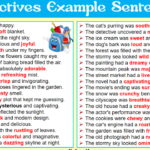Expository writing is a type of writing that explains, informs, or describes a topic clearly and logically. It is important because it helps students express their thoughts using facts, examples, and organized ideas. In expository writing, students learn to present information in a structured and engaging way.
Types of Expository Writing Prompts
Descriptive Prompts
Descriptive writing focuses on explaining or describing something in detail. These prompts help students practice using sensory details and clear descriptions. Examples include:
- Describe your favorite place and explain why you like it.
- Explain what makes a great friend.
- Describe an important event in your life and how it changed you.
How-To/Process Writing Prompts
How-to writing provides step-by-step instructions on completing a task. These prompts encourage students to organize their thoughts logically. Examples include:
- Explain how to make your favorite meal.
- Describe the steps to take care of a pet.
- Explain how to play your favorite game or sport.
Cause and Effect Prompts
Cause and effect writing explains why something happens and what results from it. These prompts help students explore relationships between events. Examples include:
- What are the effects of not getting enough sleep?
- Explain how practicing a skill can help you improve.
- What happens when people don’t recycle?
Compare and Contrast Prompts
Compare and contrast writing highlights similarities and differences between two topics. Examples include:
- Compare and contrast two holidays you celebrate.
- How is school different from homeschooling?
- Compare two books or movies and explain their similarities and differences.
Problem and Solution Prompts
Problem and solution writing identifies an issue and offers possible solutions. Examples include:
- What is one problem in your community and how can it be solved?
- Explain a challenge kids face in school and how to overcome it.
- How can students help keep their school clean?
Structure of an Expository Essay
Introduction
The introduction sets the stage for the essay by grabbing the reader’s attention and introducing the topic. It should include:
- A hook (interesting fact, question, or statement)
- A clear introduction to the topic
- A thesis statement (the main idea of the essay)
Body Paragraphs
The body paragraphs present the main points and supporting details. Each paragraph should include:
- A clear main idea
- Facts, details, and examples to explain the idea
- Transition words (first, next, for example, in conclusion) for smooth flow
Conclusion
The conclusion wraps up the essay by summarizing the main points and restating the thesis. It should include:
- A restatement of the main idea
- A summary of key points
- A strong closing sentence

Tips for Writing a Great Expository Essay
- Plan before writing using a graphic organizer
- Stay focused on the topic and provide clear explanations
- Use simple and clear language
- Revise and edit for grammar, spelling, and clarity
- Read the essay out loud to check for flow and coherence
Expository writing is an essential skill that helps students communicate their ideas effectively. By practicing with different types of prompts, students can develop strong writing skills that will help them throughout their academic journey and beyond.
Related Article ;80 Adjectives Examples Sentences
40 expository writing prompts perfect for 5th graders:
Personal Experiences
- Describe your favorite family tradition and why it is important to you.
- Write about a time you helped someone. How did it make you feel?
- What is the best vacation you have ever been on? Describe what made it special.
- Think about your best friend. What makes them special?
- Describe a time you learned an important life lesson.
How-To and Explanatory
- Explain how to make your favorite meal or snack.
- Describe the steps to brushing your teeth properly.
- How do you take care of a pet? Explain the process.
- Tell how to stay organized at school.
- Explain how to be a good team player in sports or group activities.
Imaginative Scenarios
- If you could have any superpower, what would it be? Explain how you would use it.
- Imagine you wake up in a world with no rules. What would happen?
- What would you do if you were invisible for a day?
- If you could travel back in time, which historical event would you visit?
- Describe what life would be like if kids were in charge of the world.
Persuasive Explanations
- Explain why recess should be longer.
- Should students have homework every night? Why or why not?
- Why is it important to recycle?
- Explain why reading is important.
- Convince your principal to allow a class pet.
Science and Nature
- Why do the seasons change? Explain in detail.
- Describe the life cycle of a butterfly.
- What are some ways people can help protect the environment?
- How does the water cycle work?
- What are the benefits of exercise for kids?
Technology and Society
- Explain how the internet has changed the way we learn.
- Describe the role of robots in the future.
- What are the positive and negative effects of video games?
- How does electricity power our homes?
- Why is it important to be safe online?
Creative and Fun Topics
- Describe your dream job and why you would love it.
- What would you do if you found a treasure map?
- If you could invent a new holiday, what would it be?
- Describe what it would be like to live on another planet.
- What would happen if animals could talk?
Problem-Solving and Advice
- What advice would you give to a new 5th grader?
- Explain how to make a new friend.
- What would you do if you were lost in the woods?
- How do you handle stress or nervousness?
- What should someone do if they see bullying happening?
FAQs
1. What is expository writing?
Expository writing is a type of writing that explains, informs, or describes a topic using clear and logical organization.
2. How is expository writing different from narrative writing?
Expository writing focuses on presenting facts and explanations, while narrative writing tells a story with characters, a setting, and a plot.
3. What are some examples of expository writing?
Examples include how-to guides, essays, research reports, and informative articles.
4. How can I make my expository writing more interesting?
Use engaging hooks, clear details, examples, and transition words to make your writing flow smoothly.
5. Why is expository writing important for students?
It helps students develop logical thinking, organize ideas effectively, and communicate information clearly.


